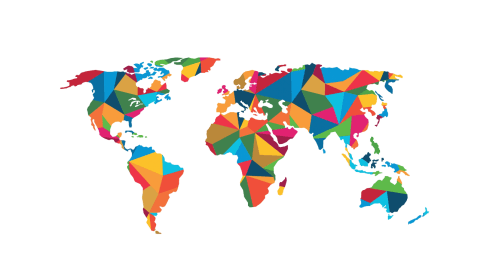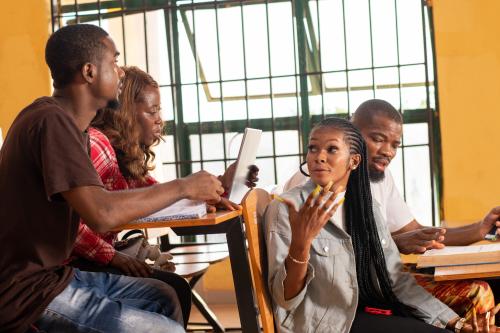According to the UNHCR there are some 10 million stateless people worldwide, although the Institute on Statelessness and Inclusion (ISI) cites a number of over 15 million. In part, the differences are due to different interpretations of Palestinian refugees. Chris Nash, director of the European Network on Statelessness describes the stateless as “legal ghosts, exposed to human rights abuses and with no recourse to justice.” Lacking legal documents, these individuals are without access to basic health and education services, with severe restrictions on their rights and freedom of movement. They are also easy prey for trafficking or recruitment by criminals and militias and at the mercy of corrupt officials.
The Middle East now faces the prospect of adding hundreds of thousands to the stateless population. Of the 4 million Syrian refugees, over 1 million are children under 18—many having left Syria without proper papers. There are also around 10,000 minors who have arrived in neighboring countries paperless and without an accompanying adult.
More at risk of permanent statelessness are tens of thousands of newborn refugees, overwhelmingly from Syria, with many lacking papers to prove their nationality. Some 70 percent of babies born to Syrians in Lebanon are estimated to be unregistered. Since only fathers can confer citizenship in Syria, Lebanon, and Jordan, an absent father will preclude registration. It is estimated that 25 percent of refugee families are headed by women, with husbands either separated, fighting, or dead. Many Syrians with passports see them expire, but even where feasible, refugees are reluctant to renew them at Syrian consulates because of fear of deportation or identification by the Syrian regime.
Jordan, Lebanon, and Syria also require marriage certificates prior to registering a baby, along with a birth notification from a hospital, doctor, or midwife. However, women often give birth at home or in emergency situations where formal birth notifications are not available. Marriage certification requires valid documents that are not always available from religious authorities performing these ceremonies. Furthermore, many marriages are performed with underage brides, rendering them invalid. Relatedly, a lack of proper papers increases the likelihood of early marriage. In Lebanon evidence of legal entry and stay in the country are necessary to register a baby. The cost of registering a baby also looms as a significant barrier. In the meantime, ISIS has started destroying passports and other identification documents issued by the Syrian government as a punitive measure, but also to cut links to nationality and former homes.
Registration in the host country is critical in documenting a child with its country of origin and to prepare a return to Syria or for refugee benefits. UNHCR and others are tackling the issue of sensitizing refugees to the importance of registering children – many parents are unaware of the consequences in terms of access to schools, health care, and other basic services. The UNHCR has established legal aid initiatives in Iraq, Jordan, and Lebanon to help refugees with the often cumbersome procedures. Jordan has established civil registry departments and courts in the Za’atari and Azraq refugee camps. It is estimated that 70 percent of Syrian babies are now registered. Reaching refugees outside the camps remains problematic.
In Turkey, home to the largest Syrian refugee population, the Population Department nearest to the refugee’s place of residence has to be notified within a month of the birth. Parents or legal guardians should register the child but grandparents, siblings or accompanying adults can also do so. Official documents are needed but if unavailable, oral statements from accompanying adults will suffice to issue a birth certificate. Many refugees still refuse to register—either unaware of the consequences or wary of authorities in general. The relative ease of registration reflects existing legislation and the need to lay the basis for repatriation or eventual integration of this growing population. According to the UNHCR, Turkey currently hosts 1.7 million Syrian refugees and 300,000 Iraqis; moreover, 500,000 more are expected from Syria before the end 2015.
Today’s Syrian refugees are in addition to three older stateless populations in the Middle East. The Palestinians loom large and their challenges and numbers are of an order all its own. The ISI report on the World’s Stateless discusses the Palestinians in three categories: Palestinians who fall under the UNRWA mandate; Palestinians under UNHCR’s refugee mandate; and Palestinians potentially under UNHCR’s statelessness protection mandate. Accordingly, there are over 5 million Palestinians who are stateless or whose nationality status is unclear. The other distinct stateless groups include several hundred thousand Bidoon in the Persian Gulf region. When boundaries in the region were established, some countries used tribal affiliations rather than borders to determine citizenship and thousands ended up without any nationality. There are also over 200,000 stateless Kurds in Syria and Lebanon. Syria had announced a policy to address this issue in 2011 but the deterioration of the security situation has precluded a resolution. Today this Kurdish population constitutes up to 10 percent of the 250,000 Syrian refugees in Iraq.
In November 2014 the UNHCR announced a global campaign to end statelessness within 10 years. The campaign does not include the Palestinians since, according to U.N. refugee head Antonio Guterres, the U.N. General Assembly has recognized Palestine as a state, and that this “very specific situation” required a “political solution.” Still, the campaign includes a special report and a 10 point global action plan. With the world now facing the unprecedented number of over 50 million refugees and internally displaced people, governments, humanitarian and aid agencies, and development institutions need to lay the groundwork for providing the support and resources needed to ensure that we don’t add to the number of the stateless as we grapple with this global challenge.



Commentary
The state of statelessness in the Middle East
May 15, 2015